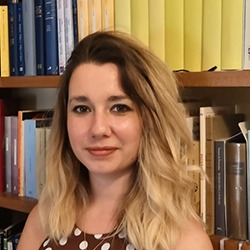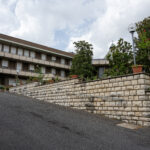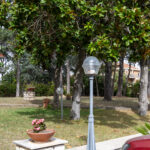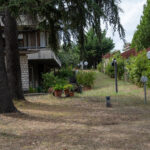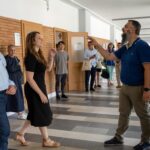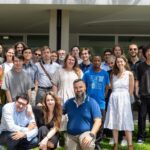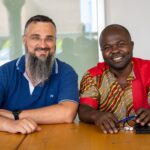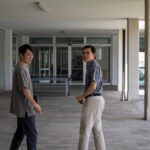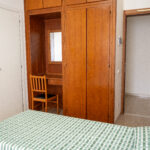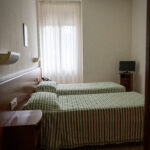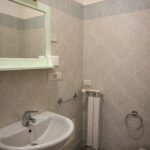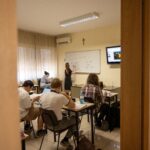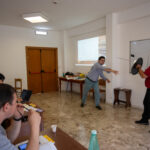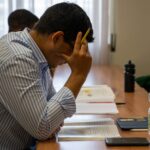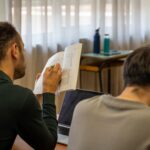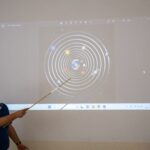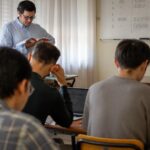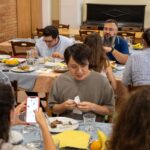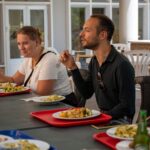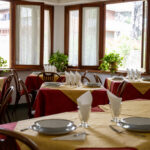Summer course in presence
- Home
- Courses
- Summer course in presence
- Summer course of Ancient Greek in Rome – Π.ΑΙ.ΓΝ.ΙΑ. (Πεπαιδευμένοι ἈΙτία ΓΝωσόμεθα ἸΑτρεῖα)
Summer course of Ancient Greek in Rome – Π.ΑΙ.ΓΝ.ΙΑ. (Πεπαιδευμένοι ἈΙτία ΓΝωσόμεθα ἸΑτρεῖα)
Live a unique experience in the heart of Rome! Together with students coming from all over the world, study Ancient Greek language and literature, by immersing tousled in the language: all the activities, from the lessons to the meals, are completely held in Ancient Greek! The IISC methodology, more and more appreciated and known all over the world, guarantees a fast and sound learning: students will deal both with the grammar and the vocabulary, learning thousands of words, in order to be able to read fluently literary texts.
Overview
The course
IISC Summer course allows students to completely immerse themselves in Ancient Greek, guaranteeing a fast and sound learning of the language.
Lessons are completely held in Ancient Greek and they do not require any pre-requisite (besides knowledge of the Ancient Greek alphabet): students are guided into the learning of the language starting from the very first notions of the language up to the direct access to the original texts of Classical literature.
Students who wish to have an even deeper and more effective immersion in the language, may be accommodated at the Guesthouse Mater Mundi (Via Lorenzo Rocci, 64 – Rome), for the four weeks of the course, sharing every moment of their daily life using actively Ancient Greek and thus making the language immersion even more effective. Not only lessons but also meals, recreational moments, visits to the archeological sites of Ancient Rome are completely held in Ancient Greek.
Morning lessons are held from Monday to Friday; afternoon courses are held from Monday to Thursday. Didactic field trips to the archeological sites of Ancient Rome are held on Saturday: through the reading of Greek literary texts, students will listen the Ancient writers’ voices where they first echoed. Sunday is free; students who make an official request at the moment of subscription might reserve guided tours (in English) to the Roman monuments with a licensed guide.
IISC Methodology
Didactic
Language lessons are held in the morning, from 9 am to 1.30 pm.
Lessons will cover the entire grammar and they guarantee learning of the 2000 most frequent words of Greek literature.
At the end of the course, students will be able to read fluently Classical literary texts in the original language.
The following supplementary lessons are given in the afternoon (from Monday to Thursday):
- Chapter focus: lessons review and focus on the main topics of the morning lessons.
- Reading, speaking, writing: lessons strengthen and expand knowledge of the Ancient Greek vocabulary and grammar. Under the teacher’s guidance, students are faced with different exercises which aim to enhance their skills in speaking, writing and reading. Lessons include written production of texts in Ancient Greek, conversation in Ancient Greek and reading of both Classical texts and artificial texts, specifically thought for acquiring active language skills.
All lessons aim to enhance and consolidate the ability to read Classical texts in the original language and to acquire a deeper knowledge of the language.
Students who have difficulties in buying the textbooks will be assisted upon their arrival at the course location:
- M. Balme – G. Lawall, Athénaze 1, Oxford University Press
- M. Balme – G. Lawall – J. Morwood, Athenaze, Workbook I: An Introduction to Ancient Greek, Revised Third Edition, Oxford University Press
- M. Balme – G. Lawall, Athénaze 2, Oxford University Press
- M. Balme – G. Lawall – J. Morwood, Athenaze, Workbook II: An Introduction to Ancient Greek, Revised Third Edition, Oxford University Press
- Excerpts (provided by the instructor) from C. W. E. Peckett, A. R. Munday, Thrasymachus, Bloomsbury Publishing Plc
- Excerpts (provided by the instructor) of Greek classics, including passages from Plato, Homer, Simonides and others
Recommended readings (the following texts are not required for the exam, but are recommended for those who wish to strengthen their knowledge):
- W. H. D. Rouse, A Greek boy at home, Blackie & Son (see the link)
- P. Saffire – C. Freis, Ancient Greek alive, University of North Carolina
- Joint Association of Classical Teachers, Reading Greek, Cambridge University Press
– Students who have attended at least 75% of class hours may obtain a course completion certificate.
– Those who wish to obtain university certifications (12 CFU/ECTS) should pass the final exam with an evaluation fo at least 18/30. The exam will consist in a written test structured as follows: (a) grammatical competences, (b) comprehension of a written text, (c) production of a written text.
In virtue of an agreement between the Italian Institute of Classical Studies (IISC) and the Faculty of Classics of the Salesian Pontifical University (UPS) – whose titles are recognized by Italy – the ECTS issued at the IISC are automatically recognized for the student enrolled at the UPS and they are recognizable at the Italian Universities (without prejudice to the discretion granted to the universities by the Italian law).
Accommodation
Students may be accommodated at the Guesthouse Mater Mundi, in Via Lorenzo Rocci 64, Rome (if they wish to). In this case, students are given:- Single or double bedroom with private bathroom and air conditioning;
- weekly cleaning of the room and linen change;
- study rooms;
- complete pension, which includes breakfast, lunch and dinners (first dish, second dish, side dish, fruit, bread, water and wine);
- laundry service (not included in the fees).
Tabella oraria
Ancient Greek Language
Lunch
Chapter focus
Reading, speaking, writing
Personal study
Dinner
Didactic field-trips (in Greek)
2) Saturday July, 12: Palatin Hill
3) Saturday July, 19: Ancient Ostia
Guided tours (in English)
2) Sunday July, 13: the city beyond the river (Ponte degli Angeli, Castel S. Angelo, St. Peter square)
3) Sunday July, 20: on Caravaggio's footprints (from S. Maria del Popolo to S. Agostino)
Course fees
Didactic You may choose among the following options:- Basic: € 1090 (it includes only the morning lessons of Ancient Greek, h. 9 am -1:30 pm);
- Complete: € 1190 (it includes: 1. Morning lessons of Greek language; 2. “Chapter focus” in the afternoon; 3. “Reading, speaking, writing” in the afternoon; 4. Three didactic field-trips on Saturday (tickets included);
- Advanced: € 1390 (it includes all the activities of the Complete option and three guided tours in Rome on Sunday).
- Place in double bedroom with private bathroom and air conditioning;
- Cleaning of the room and linen change;
- Full board: breakfast, lunch and dinner (first dish, second dish, side dish, bread, fruit, water and wine);
- Free access to classrooms and study rooms.
| Without accomodation | With accommodation in double room | With accommodation in single room | Deadline | |
| Registration fees | – € 190 for the “basic” option – € 290 for the “complete” option – € 490 for the “advanced” option | – € 290 for the “basic” option – € 390 for the “complete” option – € 590 for the “advanced” option | – € 340 for the “basic” option – € 440 for the “complete” option – € 640 for the “advanced” option |
Upon registration |
| I installment | € 300 | € 600 | € 700 | By March, 31 |
| II installment | € 300 | € 600 | € 700 | By April, 30 |
| III installment | € 300 | € 500 | € 675 | By May, 31 |
Instructor
Flavia Farina teaches Philosophy and Theory of Action in the Antiquity at the Roma Tre University.
She was visiting scholar in Philosophy at the Oxford University. She was a Post-Doc research fellow for the PRIN Project “Ethics and Technology“. She earned, with honors, a PhD in Ancient Philosophy (Roma Tre – Tor Vergata / Sorbonne Université). She graduated with honors in Philosophical Sciences (Roma Tre University).
She has written papers both in national and international journals, such as “Degrees of Culpability and Voluntary Actions” (Elenchos), “Gli eph’hemin e l’unidirezionalità degli abiti – una conciliazione possibile tra le Etiche di Aristotele” (Méthexis), “Aristotle on (second) nature, habit and character” (R. Chiaradonna, F. Farina – Routledge).
She mainly deals with Aristotle, ancient ethics and Hellenistic Greek.
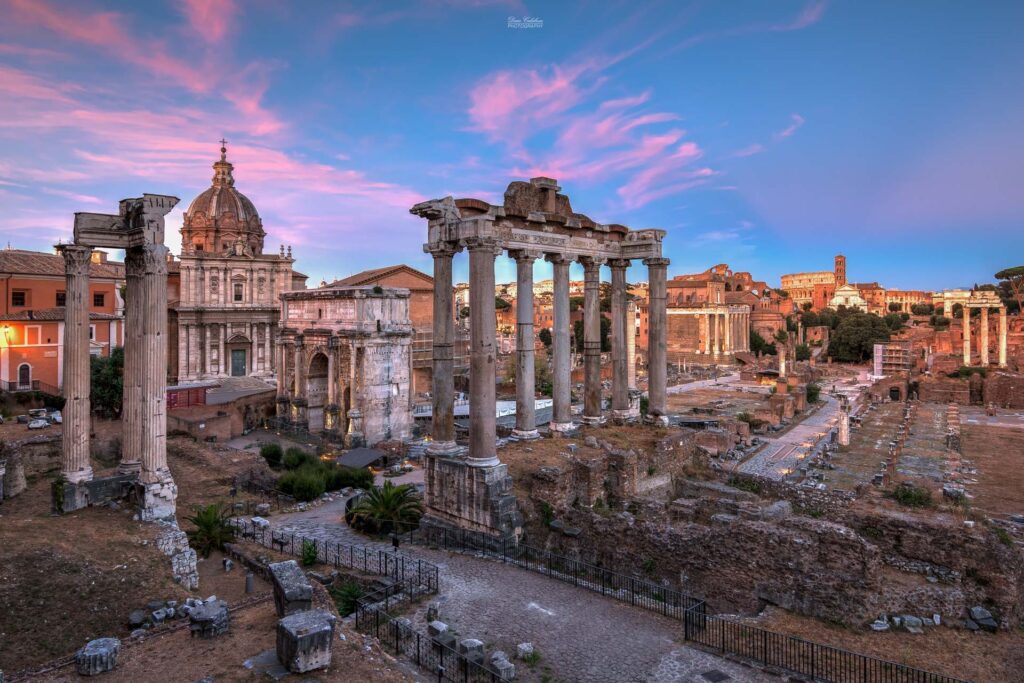
- Start/end dates: 2025 June, 29 - 2025 July, 26
- Teaching method: in person (accommodation available)
- Schedule: from Monday to Friday (+ didactic field-trips in the weekend)
- Duration: 120 hours
-
Structure:
Ancient Greek language : 90 hours
Chapter focus: 16 hours
Reading, speaking, writing: 16 hours -
Location:
Rome
Guesthouse Mater Mundi in Via Lorenzo Rocci 64 - Titles released: 12 CFU/ECTS
- Language Ancient Greek
- Limited enrollment: up to 20 participants
- Academic fees: starting from € 1090 (payable in installments)

